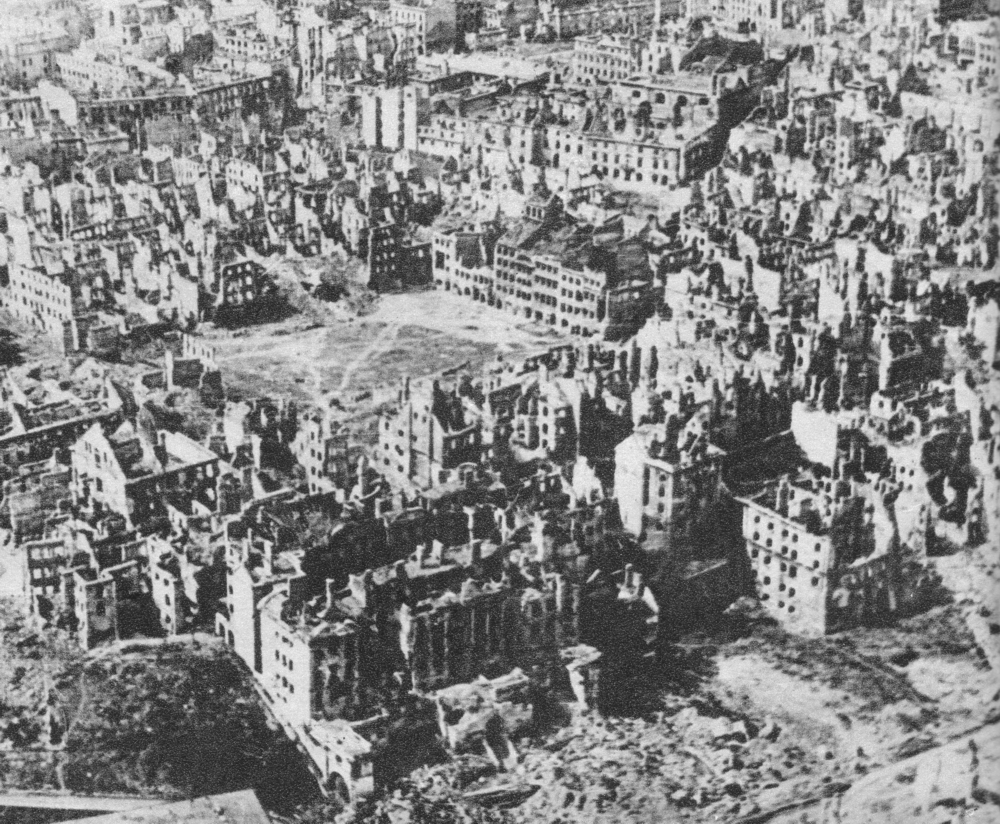
Aftermath of World War II
The aftermath of World War II saw the rise of two global superpowers, the Soviet Union (USSR) and the United States (US). The aftermath of World War II was also defined by the rising threat of nuclear warfare, the creation and implementation of the United Nations as an intergovernmental organization, and the decolonization of Asia and Africa by European and East Asian powers, most notably by the United Kingdom, France, and Japan.
Once allies during World War II, the United States and the Soviet Union became competitors on the world stage and engaged in the Cold War, so called because it never resulted in overt, declared total war between the two powers. It was instead characterized by espionage, political subversion and proxy wars. Western Europe and Asia were rebuilt through the American Marshall Plan, whereas Central and Eastern Europe fell under the Soviet sphere of influence and eventually behind an "Iron Curtain". Europe was divided into a US-led Western Bloc and a USSR-led Eastern Bloc. Internationally, alliances with the two blocs gradually shifted, with some nations trying to stay out of the Cold War through the Non-Aligned Movement. The war also saw a nuclear arms race between the two superpowers; part of the reason that the Cold War never became a "hot" war was that the Soviet Union and the United States had nuclear deterrents against each other, leading to a mutually assured destruction standoff.
As a consequence of the war, the Allies created the United Nations, an organization for international cooperation and diplomacy, similar to the League of Nations. Members of the United Nations agreed to outlaw wars of aggression in an attempt to avoid a third world war. The devastated great powers of Western Europe formed the European Coal and Steel Community, which later evolved into the European Economic Community and ultimately into the current European Union. This effort primarily began as an attempt to avoid another war between Germany and France by economic cooperation and integration, and a common market for important natural resources.
The end of the war opened the way for decolonization from the great powers. Independence was granted to India and Pakistan (from the United Kingdom), Indonesia (from the Netherlands), the Philippines (from the US) and a number of Arab nations, from specific mandates which had been granted to great powers from League of Nations Mandates. Independence for the nations of Sub-Saharan Africa came later.
The aftermath of World War II saw the rise of communist influence in East Asia, with the People's Republic of China, as the Chinese Communist Party emerged victorious from the Chinese Civil War in 1949.
Unexploded ordnance[edit]
Unexploded ordnance continues to pose a danger in the present day. In 2017 fifty thousand people were evacuated from Hanover so World War II era bombs could be defused.[144] As of 2023, it is still thought that thousands of unexploded bombs remain from World War II.[145]
Environment[edit]
When World War II ended scientists did not have procedures for safe disposal of chemical arsenals. At the direction of the UK, US and Russia, chemical weapons were loaded onto ships by the metric ton and dumped into the sea. The exact locations of the dumping are not known due to poor record keeping, but it is estimated that 1 million metric tons of chemical weapons remain on the ocean floor where they are rusting and pose the risk of leaks. Sulfur mustard exposure has been reported in some parts of coastal Italy and sulfur mustard bombs have been found as far as Delaware, likely brought in with the shellfish cargo.[146]